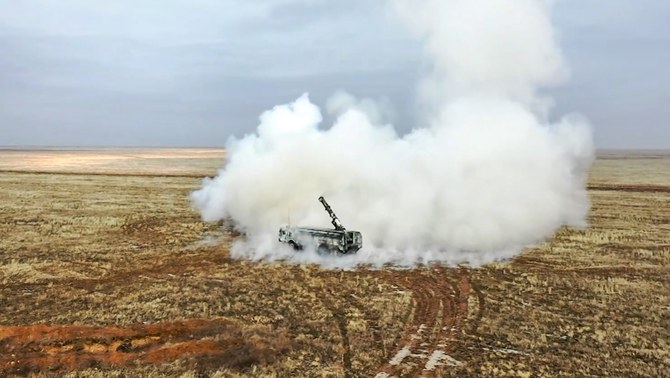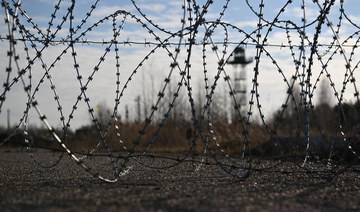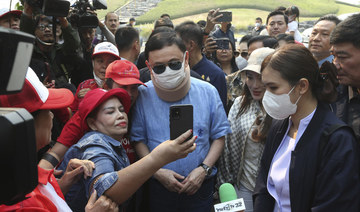MOSCOW: Russia moved ahead on Thursday with a plan to deploy tactical nuclear weapons in Belarus, whose leader said the warheads were already on the move, in the Kremlin’s first deployment of such bombs outside Russia since the 1991 fall of the Soviet Union.
The US State Department denounced the deployment plan, but said Washington had no intention of altering its position on strategic nuclear weapons or seen any signs Russia was preparing to use a nuclear weapon.
Russian President Vladimir Putin says the United States and its allies are fighting an expanding proxy war against Russia after the Kremlin chief sent troops into Ukraine 15 months ago.
The plan for the nuclear deployment was announced by Putin in an interview with state television on March 25.
“The collective West is essentially waging an undeclared war against our countries,” Putin’s defense minister, Sergei Shoigu, said at a meeting with his Belarusian counterpart in Minsk, according to Russia’s defense ministry.
The West, Shoigu said, was doing all it could “to prolong and escalate the armed conflict in Ukraine.”
Belarus President Alexander Lukashenko said that tactical nuclear weapons were already on the move in accordance with an order signed by Putin, though there was no confirmation of that from the Kremlin itself.
“The movement of the nuclear weapons has already begun,” Lukashenko told reporters in Moscow, where he was attending talks with other leaders of ex-Soviet states.
Asked if the weapons were already in Belarus, he said: “Possibly. When I get back I will check.”
STORING NUCLEAR WEAPONS
Shoigu said the documents he was signing in Minsk concerned the process for storing tactical nuclear weapons in Belarus.
In Washington, State Department spokesperson Matthew Miller described the plans as “the latest example of irresponsible behavior that we have seen from Russia since its full-scale invasion of Ukraine over a year ago.”
Miller repeated Washington’s warning that use of chemical, biological or nuclear weapons in the conflict would be met with “severe consequences,” without specifying those consequences.
“I will just add we have seen no reason to adjust our strategic nuclear posture or any indications that Russia is preparing to use a nuclear weapon,” Miller told reporters.
Putin has repeatedly warned that Russia, which has more nuclear weapons than any other country, will use all means to defend itself, and he has cast the Ukraine war as a battle for the survival of Russia against an aggressive West.
The United States and its allies say they want Ukraine to defeat Russian forces on the battlefield, but deny that they want to destroy Russia — and deny that the Ukraine war is in any way linked to post-Soviet enlargement of NATO.
Belarus has borders with three NATO members — Poland, Lithuania and Latvia. Russia will remain in control of the weapons.
RUSSIA’S TACTICAL NUCLEAR ARMS SUPERIORITY
Tactical nuclear weapons are used for tactical gains on the battlefield, and are usually smaller in yield than the strategic nuclear weapons designed to destroy US or Russian cities.
Russia has a huge numerical superiority over the United States and the NATO military alliance when it comes to tactical nuclear weapons: the United States believes Russia has around 2,000 such working tactical warheads.
The United States has around 200 tactical nuclear weapons, half of which are at bases in Europe.
Shoigu said that Iskander-M missiles, which can carry conventional or nuclear warheads, had been handed to the Belarusian armed forces, and some Su-25 aircraft had been converted for the possible use of nuclear weapons.
“Belarusian servicemen have received the necessary training,” Shoigu was quoted as saying by his ministry.
The United States has said the world faces the gravest nuclear danger since the 1962 Cuban Missile Crisis because of remarks by Putin during the Ukraine conflict, but Moscow says its position has been misinterpreted.
The Treaty on the Non-Proliferation of Nuclear Weapons, signed by the Soviet Union, says that no nuclear power can transfer nuclear weapons or technology to a non-nuclear power, but it does allow for the weapons to be deployed outside its borders but under its control.

























